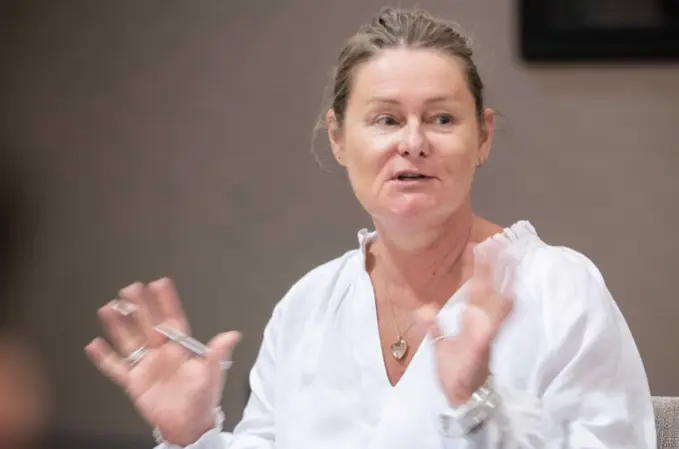On Friday, 15th of July, Nutritics Managing Director Stephen Nolan and Lead Sustainability Coordinator Dr Laura Kirwan were joined by a panel of top foodservice and hospitality sustainability experts in London to discuss the importance of achieving ESG goals despite the challenges posed by the recent pandemic. The conversation was important and extremely relevant for the food industry, and we’re delighted to share some of the highlights with our network.
Stephen Nolan and Laura Kirwan of Nutritics were delighted to be joined by a distinguished panel who all came from businesses operating in the contract catering, pub and restaurant sectors. The panel included:
- Clare Clark (Sustainability Business Partner, CH&CO)
- David Mulcahy (Food Innovation and Sustainability Director, Sodexo)
- Charlotte Wright (Corporate Responsibility and Sustainability Leader, Elior UK)
- Mel Marriott (MD, Darwin and Wallace)
- Oliver Rosevear (Director of Sustainability, Fuller, Smith & Turner Plc)
- Ellie Besley-Gould (Head of Purpose, Hawksmoor)
- Anne Simmonet (MD, Foodbuy)

The obstacles in tackling sustainability
While the importance of a sustainability strategy was the core focus of the discussion, the conversation soon turned to issues the industry is currently facing, such as people and resourcing. Several panellists agreed that, while teams may buy into sustainability, chefs’ attention is currently focused on ensuring that core responsibilities in the kitchen are covered amidst the staffing shortage. There is also increased pressure on foodservice businesses to ensure they are compliant with new legislative changes such as Natasha’s Law. Under these additional demands, chefs are struggling to find the time to attend training sessions or visit suppliers, learn about sustainability and develop initiatives to address it.
Panellists suggested that sustainability will continue to be difficult to prioritise until it is simplified and automated to make it easy for teams to be sustainable. Attendees said the data gap needs to be addressed so that sustainability can be measured in a way that isn’t complex or tedious, and that staff stress levels and mental health must also be considered on this journey.
During the discussion, senior management buy-in was emphasised as key to ensuring that sustainable initiatives can be delivered at pace. Engaged boards will invest in projects and initiatives so that teams are given the time to pursue education and incentivised for changing their behaviour.

Attendees said that some finance teams already recognise that we are approaching the point where the cost of not tackling sustainability will become higher than actually doing something about it. It was suggested that the pandemic has given the sector the opportunity to do things differently, as the barriers to change that once existed may have been lifted by the unprecedented developments of the last few years. For instance, QR codes were resurrected during the pandemic, whereas previous uptake was slow.
Consumers are also more aware of the challenging landscape faced by operators and may therefore be more forgiving of shorter menus or the removal of certain items, particularly if it is with sustainability in mind — although it’s worth bearing in mind that, for years, the market has been geared towards variety and wider choice, and this remains a challenge.

The problem of food waste
Plate waste was highlighted as a particular issue that businesses in the sector are monitoring and addressing, down to details like which garnishes to use — and it was highlighted that food waste, efficiency and profitability go hand in hand. However, consumers also need to be taken on this journey to ensure reduced portion sizes aren’t perceived as reduced value for money, particularly in the climate of a cost-of-living crisis, with transparent communication being critical. Some establishments, for example, have tackled this by offering guests smaller portions with the opportunity to have more food if they are still hungry.
Panellists also pointed out that customers will not necessarily understand why certain foods cost more and how much work goes into sourcing from reputable, sustainable and ethical sources. It was emphasised that the stories being told around cost and sustainability are speaking to chefs and not consumers, and that the sector needs to be better at communicating the right messages to the latter. These messages also need to encompass the full sustainability picture and not focus solely on carbon, for instance. Shouting loudly about sustainability initiatives that don’t have much impact also carries the risk of a business being accused of ‘greenwashing’.
Ultimately, despite the challenges facing teams, it was agreed that customers, investors and teams expect sustainability to be a top priority for companies — one that must be tackled if they are to remain employers and service providers of choice.

Foodprint by Nutritics
Nutritics recently launched our latest product offering, Foodprint, a patent pending carbon footprint analysis, management and reporting solution that gives food businesses transparency on the environmental impact of the foods and products they serve. Fully automated and based on reliable, scientific data, we believe our breakthrough technology is a key solution in tackling the challenges the foodservice and hospitality industry face in meeting their ESG goals.
